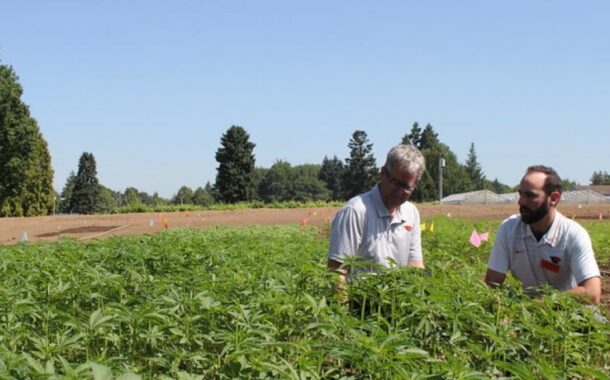NIHC Partner, Oregon State’s Global Hemp Innovation Center, receives $10 Million Grant from USDA
 The USDA has awarded a $10 million grant to Oregon State University’s Global Hemp Innovation Center (GHIC) to define economic opportunities for industrial hemp in the Western United States.
The USDA has awarded a $10 million grant to Oregon State University’s Global Hemp Innovation Center (GHIC) to define economic opportunities for industrial hemp in the Western United States.
The grant, which funds the five-year project, is funded by USDA’s National Institute for Food and Agriculture’s Sustainable Agriculture Grant Program and will study the economic opportunities for hemp in Native American and rural communities in Washington, Oregon, Nevada and California.
You can read the full brief of the grant here on the USDA website.
“We established the Global Hemp Innovation Center in 2019 to bring together a wide variety of stakeholders to address big unanswered questions about the hemp industry,” Jeffrey Steiner, associate director of the center said in a statement. “While enthusiasm for hemp has grown, there is still a tremendous lack of knowledge about the crop.”
NIHC President and CEO Patrick Atagi sits on the Executive Advisory Board of Oregon State’s Global Hemp Innovation Center. Oregon State University’s Global Hemp Innovation Center partners with NIHC, frequently lending data and scientific expertise as we advocate for and protecting the brand of hemp.
 In what is sure to be a highlight next month in Washington, Jay Noller, the Executive Director of the Global Hemp Innovation Center, will be providing the keynote address at NIHC’s Hemp Business Summit.
In what is sure to be a highlight next month in Washington, Jay Noller, the Executive Director of the Global Hemp Innovation Center, will be providing the keynote address at NIHC’s Hemp Business Summit.
“As a member of the Global Hemp Innovation Center’s Executive Advisory Board, I’m excited at the possibilities this grant presents the entire hemp industry,” said Atagi. “From food, to fiber and grain, industrial hemp has the potential to prime the pump of our economy over the next generation while also setting the standard for climate smart agriculture. This grant will help showcase the potential of the hemp plant and I couldn’t be more pleased for Jay and Jeff and the entire team at Oregon State.”
The grant was announced by USDA Secretary Tom Vilsack as part of an investment of more than $146 million in sustainable agricultural research projects aimed at improving a robust, resilient, climate-smart food and agricultural system.













